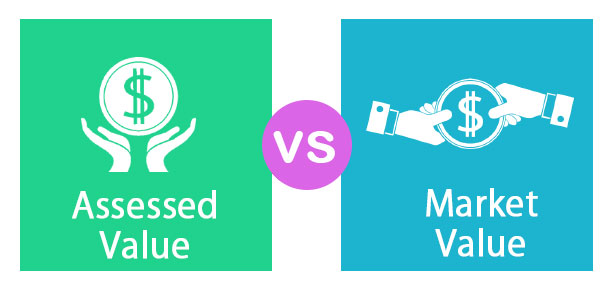
What is Market Value vs Assessed Value in Dallas
Market Value by Definition:
As per Fannie Mae’s definition, “Market value is the most probable price that a property should bring in a competitive and open market under all conditions requisite to a fair sale, the buyer and seller, each acting prudently, knowledgeably and assuming the price is not affected by undue stimulus.”
In simpler terms, the market value is the amount you can reasonably anticipate receiving for your house if you keep it on the market for a few months. This assumes a smooth process, with potential buyers regularly visiting your home. It’s like setting the stage for a successful home-selling journey, where both you and the buyer are making informed and prudent decisions. Understanding this concept is crucial for navigating the real estate landscape and making sure you get the most out of your property when the time comes to sell.
Assessed Value by Definition:
Appraised Value:
Hold on, there’s more to the story. Your appraised value can actually differ from both market value and assessed value. When we talk about an appraisal, we’re referring to a meticulous examination conducted by a licensed professional who leaves no stone unturned when evaluating every nook and cranny of your home. Now, here’s the catch—even though these appraisers are experts, their evaluation is essentially their expert opinion.
In contrast, other methods of determining value are more formulaic. They rely on mathematical calculations derived from your home’s history and prevailing market conditions. So, on one hand, you have the detailed scrutiny of a professional appraiser, and on the other, you have methods grounded in numbers and historical context. Understanding this distinction is crucial because it highlights the subjective nature of an appraisal compared to the more objective, data-driven approaches used in other valuation methods.
What The Internet Has To Say About It:
What it Means For You As A Seller:
Do your homework! Make sure you have all the numbers listed above and understand terms such as the equalization ratio, fair market value, and the crucial distinction between Market Value vs Assessed Value. Make sure you are working with a true professional who can help you accurately determine the market value of your home.
Setting a great asking price is critical. You do not want to set it too high and have to repeatedly lower it to get buyers in the door. Your pricing history is public information, and repeatedly lowering your price can make buyers think there is something wrong with it. And for obvious reasons, you don’t want to set your asking price too low. To get the price you want, you must exercise patience and make sure you are working with a true professional in Dallas.
If you want to learn more about the best ways to sell your Dallas home, send us a message here or give our office a call now! (214) 989-4949
Recent posts you might like…
- 5 Tips For Selling Your Mobile Home In DallasSelling your mobile home in Dallas can be a quick and easy process when you have a plan in place. While certain selling methods work for some homeowners, others are better served in other ways! There are many routes you can take when it comes to selling. Learn more about your options and get our … Continued
- 4 Improvements to Make Before Selling Your Mobile Home In DallasBefore selling your mobile home in Dallas, there are improvements you can make to add value to your property. Learn about these improvements and the selling options available to you in our latest post! #1 – Make It Energy Efficient People are often drawn to the allure of mobile homes due to the promise of … Continued
- How To Get The Best Price For Your Manufactured Home in DallasWhen selling your manufactured home in Dallas, you’ll want to get the best price possible without having to have it on the market for a long time. In our latest post, we offer some tips to do just that! Selling a manufactured home can present unique challenges compared to selling a traditional single-family home. The pool of … Continued
- 4 Benefits of Selling A Mobile Home To A Dallas InvestorIf you want to sell a mobile home in Dallas or the surrounding areas, turning to a professional investor may not have even been on your radar. However, many investors, such as the team at Higher Home Buyer, pay excellent prices and can make the process quick and easy instead of a long and drawn … Continued
- Pro and Cons of Hiring an Agent vs. Selling to an Investor in DallasReady to sell your house in Dallas or the surrounding areas? Learn more about the pros and cons of hiring an agent vs. selling to an investor in Dallas! What many homeowners may not fully grasp is the breadth of options available when it comes to selling their property. While the traditional route of hiring … Continued

